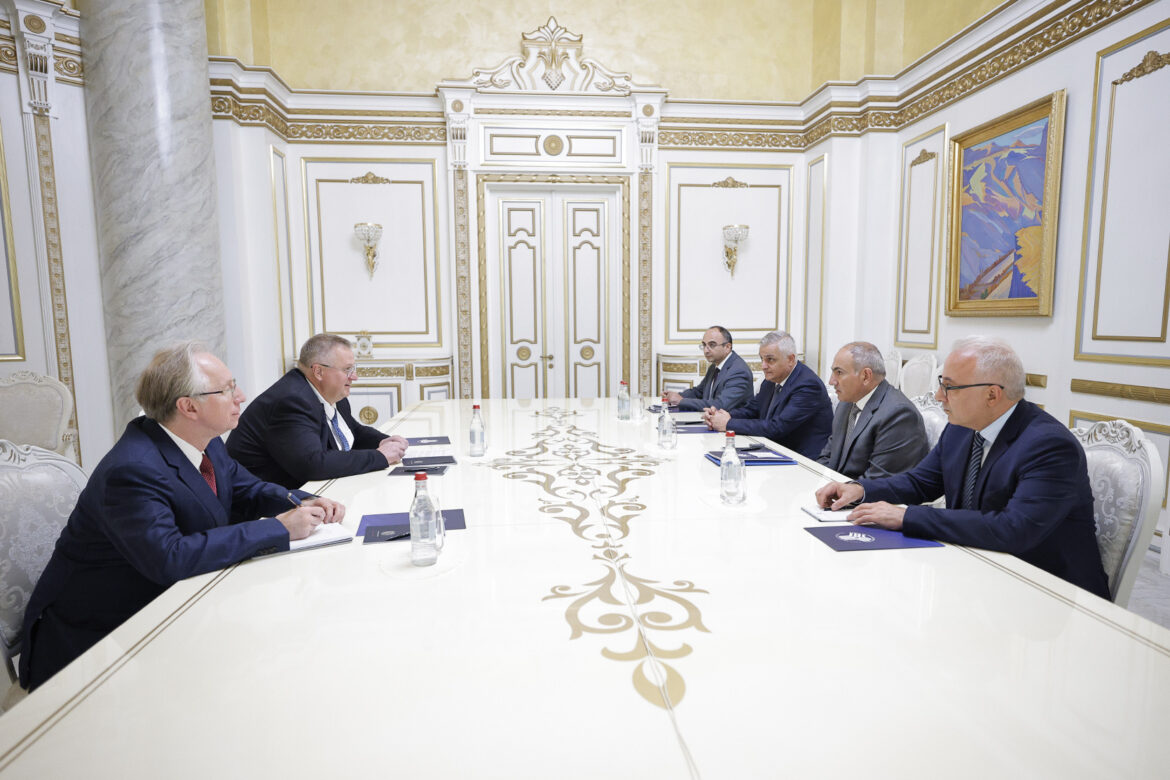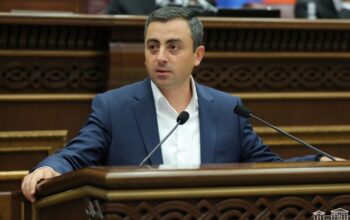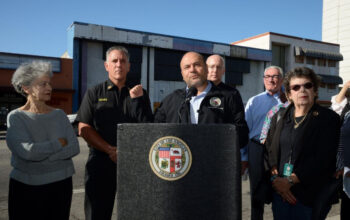Russia’s Deputy Prime Minister Alexei Overchuk held talks in Yerevan on Wednesday with Armenian leaders amid continuing debate over Armenia’s decision to allow the United States to administer a transit corridor for Azerbaijan.
Prime Minister Nikol Pashinyan agreed to the arrangement during his August 8 meeting with Azerbaijani President Ilham Aliyev hosted by U.S. President Donald Trump at the White House. A U.S.-Armenian memorandum signed there reportedly provides for a long-term U.S. lease on the corridor linking Azerbaijan to its Nakhichevan exclave through Armenia’s Syunik province.
Pashinyan said in Washington that the deal would also bring benefits to Russia and Iran. He later stated that he had addressed both countries’ concerns about the agreement.
Iranian President Masoud Pezeshkian, however, voiced opposition to any U.S. involvement in the project during his meeting with Pashinyan in Yerevan on Tuesday, cautioning against “outsourcing of regional issues” to external powers.
Overchuk’s visit came after earlier Russian warnings regarding Armenia’s economic orientation. In June, he criticized Armenia’s adoption of European Union standards for food product certification, saying they contradicted Eurasian Economic Union (EEU) rules and could trigger retaliatory measures. Pashinyan has said Armenia will eventually face a choice between the EU and the EEU but has assured Moscow that Yerevan does not currently plan to leave the bloc.
Following the Washington talks, Russia responded cautiously to the transport agreement, stressing that it must not conflict with Armenia’s obligations in the EEU or with the presence of Russian border guards on Armenia’s frontier with Iran.
Overchuk stated before arriving that his trip would focus on “nuances related primarily to the unblocking of communication routes in the South Caucasus.” The Armenian government’s statement after his meeting with Pashinyan referred only to discussions on bilateral trade and cooperation within the EEU framework.
The Russian deputy prime minister also met with his Armenian counterpart, Mher Grigoryan. According to an official readout, the two agreed that restored regional transport links must fully respect the sovereignty and territorial integrity of all states involved.
Overchuk was accompanied by Russian Deputy Foreign Minister Mikhail Galuzin. Analysts in Yerevan noted that Galuzin’s participation suggested a broader diplomatic purpose, including possible clarification of details of the U.S.-Armenian corridor agreement that have not been publicly disclosed.




